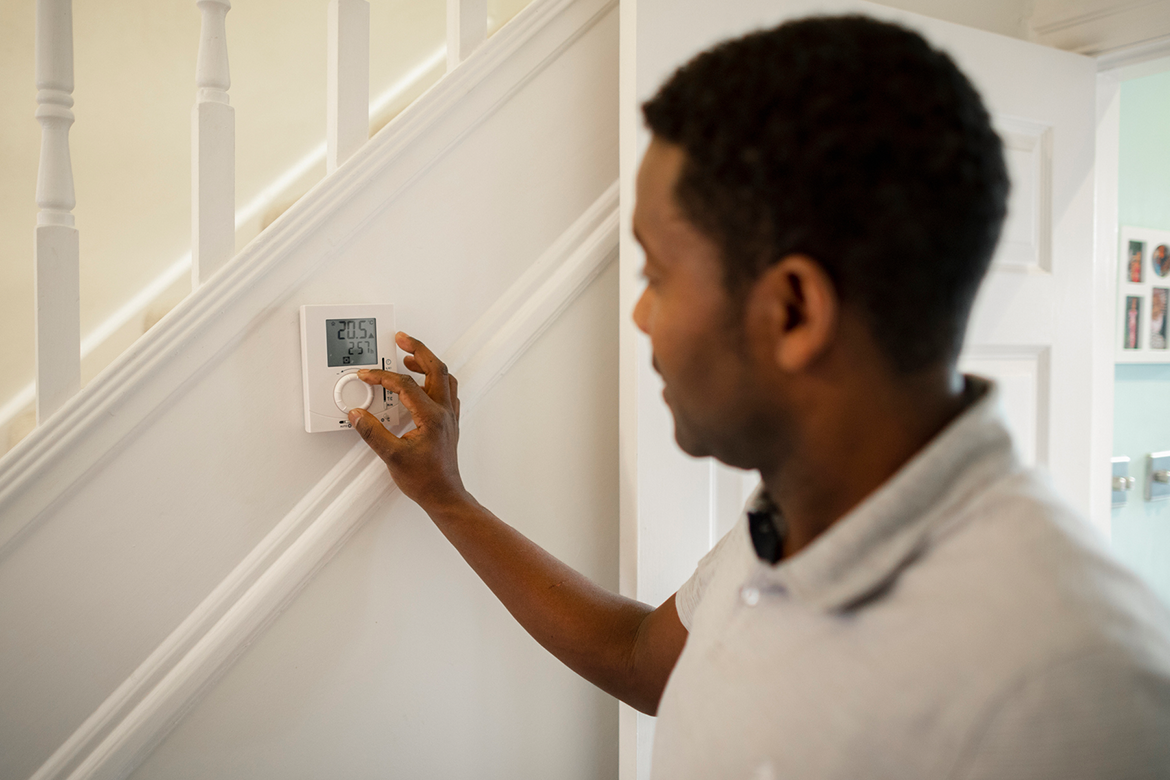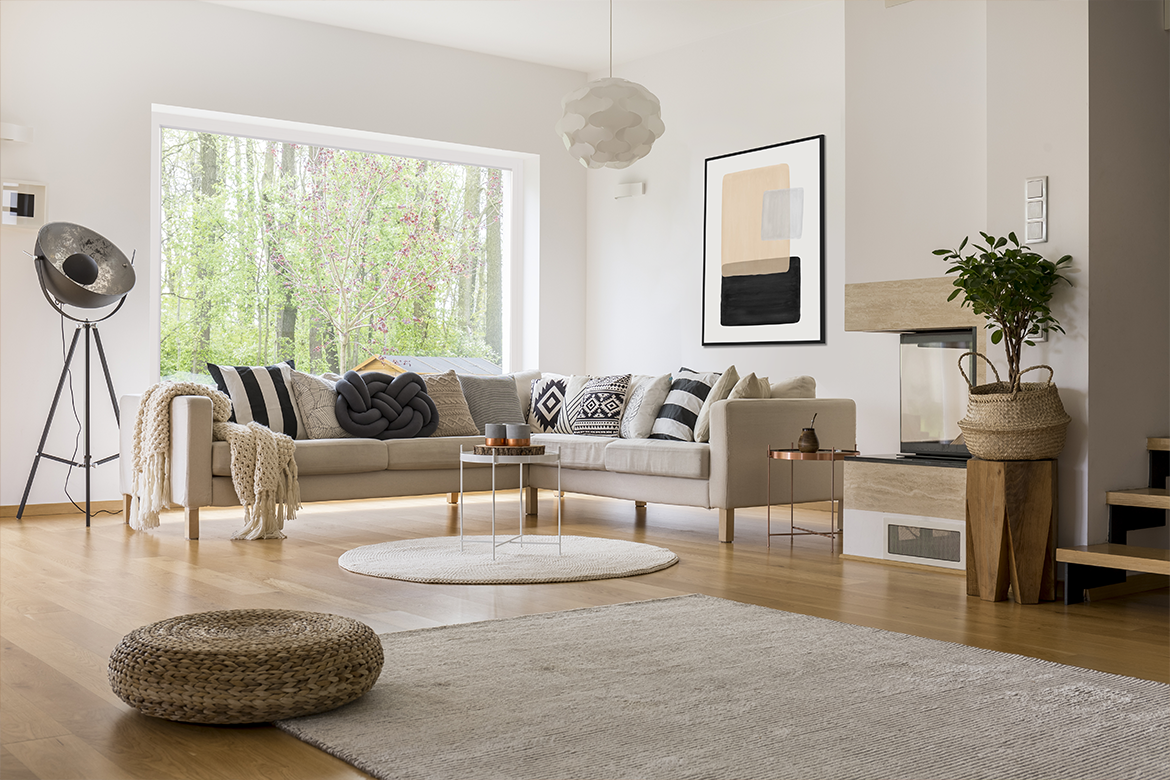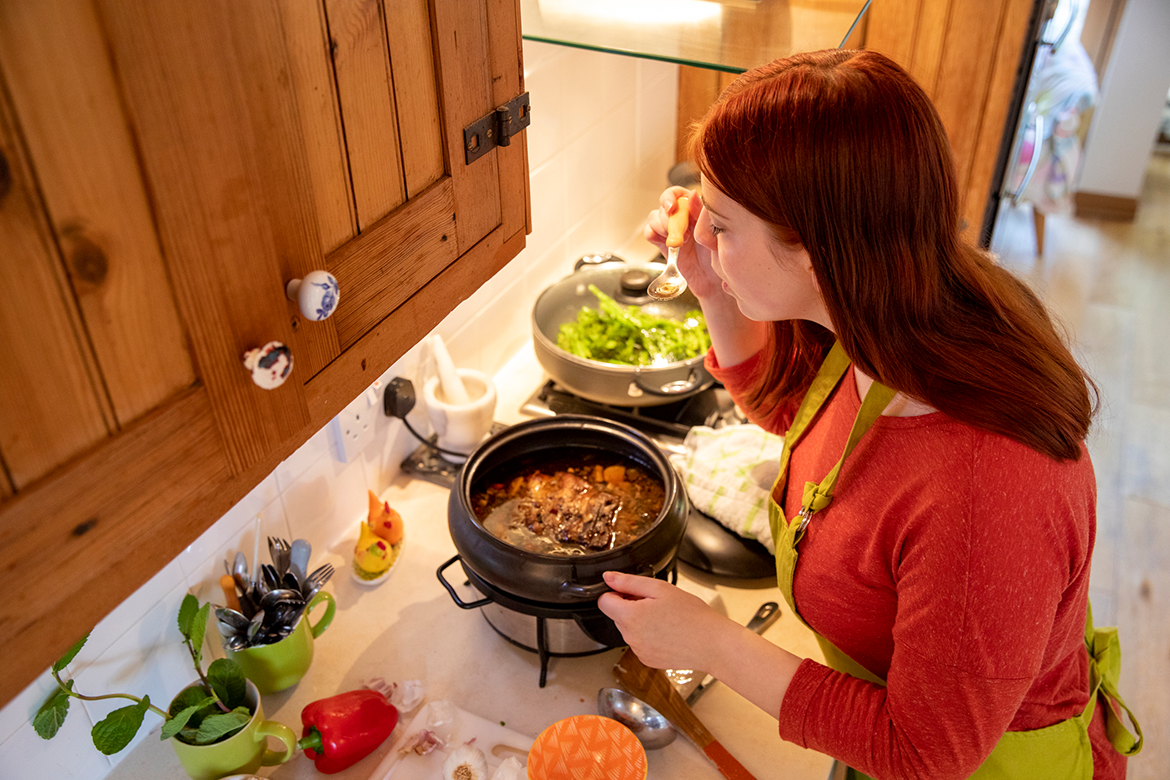People flock to Florida for its warm and sunny weather. However, with average high temps spiking into the 90s during the summer months, homes in the Sunshine State can quickly heat up to uncomfortable levels. While air conditioning offers relief, it can be expensive and wasteful — taking a toll on your utility bills and the environment alike. Read on for a roundup of six different tips for conserving energy while staying cool during the summer in Florida.
Related: Six Smart Ways to Spend Unexpected Money
Program your thermostat

Your thermostat is an effective weapon in keeping your home cool in the summer. Set your thermostat to a comfortable temperature, keeping in mind that the smallest difference between indoor and outdoor temperatures will result in the lowest cooling bills, according to the Department of Energy.
Programmable thermostats are particularly useful. Program yours to warmer temps when you’re away and cooler temps when you’re home.
One last tip from the Department of Energy? Resist the temptation to crank up the air when you first turn on the air conditioning. Not only will this fail to cool your home faster, but it can also lead to excessive cooling, higher energy usage, and expensive bills.
Use smart ventilation strategies
Ceiling fans create a wonderful cooling effect, but they do nothing to cool a room. (Remember: fans cool people, not homes.) To minimize wasted energy, turn fans off when you leave the room. The exception? Bathroom and shower fans, which remove heat and humidity. Use them whenever you shower and bathe.
Kitchen and laundry rooms fans can also benefit from spot ventilation. Just make sure they’re vented to the outside, not the attic.
Maintain your HVAC system
Regular care is essential to keeping your HVAC system in optimal operating condition. Routine maintenance also prevents small problems from turning into big ones thereby avoiding costly deferred maintenance expenses.
A few best practices for keeping your cooling system running smoothly? Make sure it’s installed properly, avoid placing heat-producing appliances like lamps and televisions near your thermostat, and keep the interior fan speed on high except on extremely humid days. The Department of Energy also recommends using interior fans in conjunction with window air conditioning units to help circulate cooler air throughout your home.
Lastly, keep in mind that your air conditioning system will perform better in an insulated and air-sealed home. A home energy audit can help detect air leaks and other energy issues.
Related: Lower Your Utility Bill with These Four Energy-Saving Secrets
Upgrade to energy-saving windows and window treatments

Featuring our Sentinel Fixed/Picture Window 130
Speaking of air leaks, windows and doors are major culprits. In fact, heat gain and loss through windows accounts for up to 30 percent of residential heating and cooling costs, according to the Department of Energy. For a major energy savings win, consider updating or replacing old windows with energy-efficient windows, such as those with impact-resistant glass.
Related: The Benefits of Vinyl Windows and Aluminum Windows
Other window-related strategies for improving energy efficiency include the following:
- Adding vaulting and weatherstripping
- Installing window treatments and coverings
- Adding awnings, overhangs, exterior blinds, and other exterior shadings
- Using window films with low-E coatings
- Installing mesh window screens

Reduce water heating costs
Did you know that water heating represents 18 percent of your home’s energy consumption? From investing in a more efficient water heater to lowering the water temp, there are many ways to reduce your footprint — and your monthly water heating bills.
And don’t forget that heating your pool in the summer uses a lot of energy. The Department of Energy recommends quickly and easily reducing pool heating costs by installing an energy-efficient pool heater.
Adjust your lifestyle

There are many simple lifestyle changes you can make to conserve energy in the summer in warm climates like Florida, such as:
- Taking cool showers
- Letting your hair air dry instead of using a blow dryer (If you absolutely must use a hairdryer, use the cool air setting.)
- Line drying your clothes instead of using a dryer
- Using cold water to wash your clothes
- Air drying your dishes in the dishwater as opposed to using the drying feature
- Preparing meals that don’t require turning on your oven. (Slow cookers, toaster ovens, and microwaves are all superior to ovens when it comes to heating food.)
- Swapping out traditional lighting for LED lighting
While these changes may seem small, they add up.
From creating a more comfortable living environment to conserving energy, there are many reasons to improve the energy efficiency of your home in Florida in the summer. The good news? There are also many things you can do to move in the direction of a more energy-efficient home. Whether you install high-efficiency windows or start line drying your clothes, these six steps are a great place to start.
